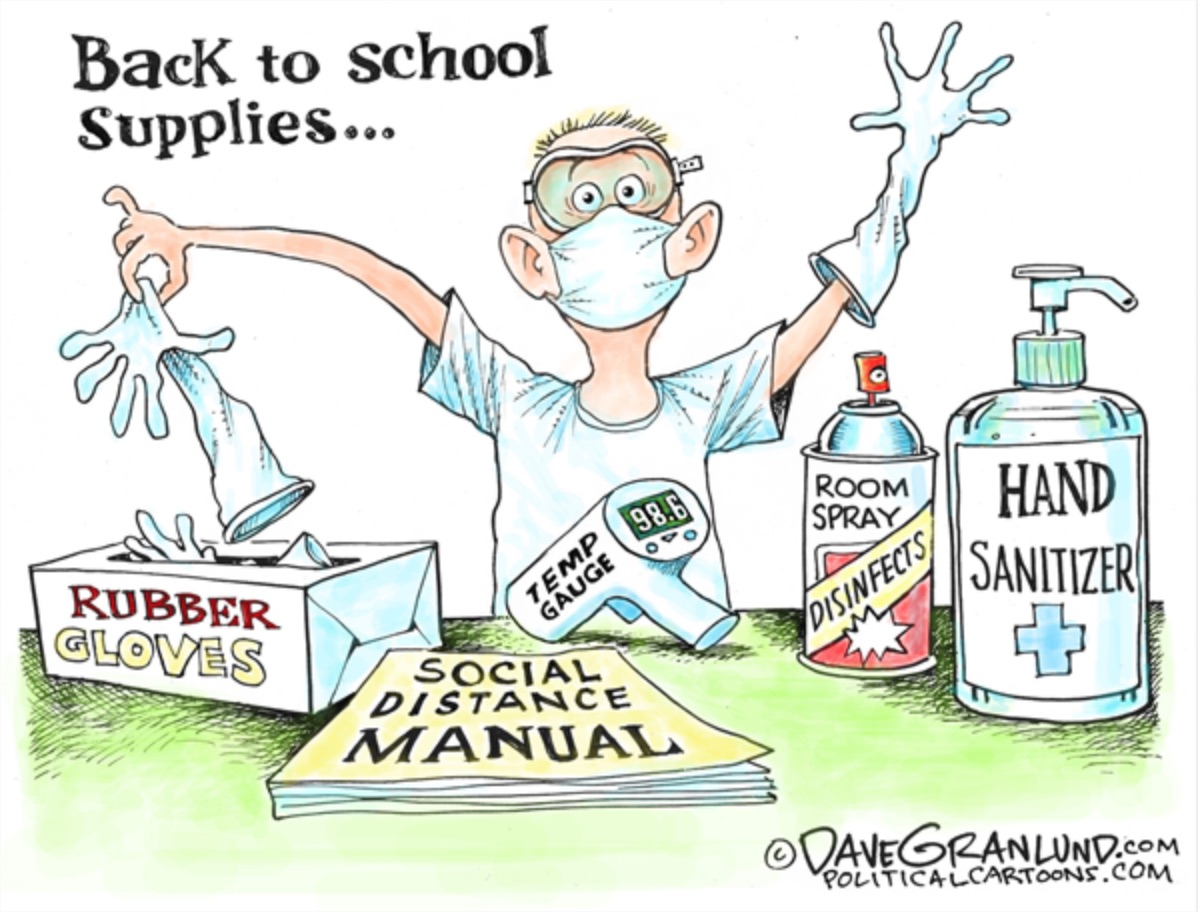Remote Learning Exceptions
Outdoor Physical Activity Classes Should Be Resumed with COVID Protocols

Santa Barbara County schools plan to continue remote learning for the fall 2020 semester. Santa Barbara City College also plans online educational programs but is considering some campus-based laboratory and activity classes for programs that cannot be delivered fully online, or disciplines in which courses can be provided using recommended safety protocols to lower risk and reduce COVID-19 transmission. I strongly endorse campus-based activity classes in the PE-Health-athletics program and performing arts departments at SBCC.
On August 7, California released “COVID-19 Industry Guidance: Institutions of Higher Education.” These State guidelines contain standards and protocols to which higher education institutions must conform in order to deliver campus-based courses. I reviewed the comprehensive plan for “Return to Face-to-Face Physical Activity Classes Outdoor Activities” developed by SBCC’s physical education/health/athletics departments. SBCC’s plan is well-conceived, thorough, and responsive to state and federal guidelines issued for public education. The SBCC comprehensive plan accounts for general guidelines for being on campus, as well as specific protocols for students in activity classes and various facilities comprising the health and fitness programs.
The Health, Physical Education, Dance and Athletics department chair, Kathy O’Conner, has stated that all the classes are also ready to go online, including in case of inclement weather. They have a schematic of La Playa stadium that shows how classes can safely operate with social distancing. The college is purchasing an app called Healthy Rosters, which screens students and employees each morning prior to coming on campus, and there will be temperature checks for each student and faculty member.
As a research psychologist, educator, and licensed therapist in California, I’m concerned about potential problems children, youths and adults may experience by an extended closure of face-to-face instruction and its replacement by remote learning in which extended screen time is the principal activity for long periods. Should online learning drift into the spring 2021 semester or beyond, this dubious educational experiment risks a generation of students with arrested learning, physical and mental impairments that may be longstanding. Remote education should be adopted cautiously only as a last option given multiple other considerations.
Activity classes (physical education, sports, etc.) and performance-based programs (e.g., theater arts and music) have many physical and psychological health benefits for students amply documented by well-designed research. In a lengthy letter to the SBCC Superintendent/President and Board of Trustees, county board of supervisors and public health director, and legislators at the state and federal levels, I outlined areas where there exists clear empirical support showing positive benefits of physical activity and performance-based programs and health risks from lack thereof. These broad areas include:
• Obesity, Diabetes and Mortality Risk
• Anxiety, Depression, Mental Health and Mortality
• Abuse and Neglect, Identification and Prevention
• Meals and Nutrition Provided by Schools
• Supportive Research on School Reopening and Cautions About Remote Learning
• Online Instruction Compromises Student Achievement
Heterogeneity of Student Learning and Needs
Although equipment to facilitate remote learning was provided to some students, there remains a sizable proportion of students whose instruction was severely interrupted, especially students of color and those from lower-income backgrounds.
To illustrate, about 13 percent of students in the L.A. Unified School District were completely absent or did not log into classes every day following the shutdown in mid-March. At SBCC, drop rates also increased markedly during the spring despite Herculean efforts to support students’ digital needs, and there is an 11 percent drop in enrollments for the fall semester. That raises the issue of equity.
Lederman (2020) argues equity gaps are, given the relative failure of emergency remote learning efforts in the spring, continuing into the fall, a form of “digitizing discrimination.” We should not assume that students from vastly different socio-economic backgrounds have access to adequate computer equipment, stable internet connections, appropriate private spaces to learn and concentrate, parent support, or other resources critical for educational growth.
To homogenize student characteristics fails to recognize or appreciate individual differences in learners, and multiple strategies good teachers must use on the fly to reach these students. Moreover, students who are preparing for careers in teaching, physical education, physical or occupational therapy, athletic training and coaching, drama and musical performing arts, and many others, are seriously disadvantaged by wholesale cancellation of academic programs preparing them for those fields.
As the pandemic extends several months, and anxiety or depression accumulate from lay-offs, furloughs, company closures, child-rearing or other stressors, outlets are needed for students and community members to productively release energy, learn positive health-promotion strategies, and to combat the detrimental negative behaviors that extended stay-at-home orders produce. Activity-based courses offered at SBCC serve as a useful community-based intervention.
Of course, health-safety are important for students and families, but as indicated in COVID-19 Industry Guidance: Institutions of Higher Education, classroom environments and activity spaces can be arranged to minimize direct contact, and preventive tools can be used by students and teachers. SBCC’s physical education/health/athletics departments department’s comprehensive plan for “Return to Face-to-Face Physical Activity Classes Outdoor Activities” serves as a model for community colleges in the state and nationally.
Much learning occurs off-line, interpersonally and in physical spaces, not merely from online sources, and we must support disciplines that offer these essential face-to-face activities while adopting comprehensive protocols to reduce potential ill health effects that realistically. In order to support the regularization of education, especially for activity, sports, and performing arts classes, I strongly support, and encourage the public to support SBCC’s comprehensive plan for “Return to Face-to-Face Physical Activity Classes Outdoor Activities,” permitting students return to selected instructional areas on campus for the fall. To our education leaders, please give your every consideration and support of the proposal for SBCC to offer activity-and-performance-based classes under safer distancing protocols.
Arthur Olguin, Ph.D., is a professor of psychology at Santa Barbara City College, he expresses his views as a public citizen and research psychologist.



